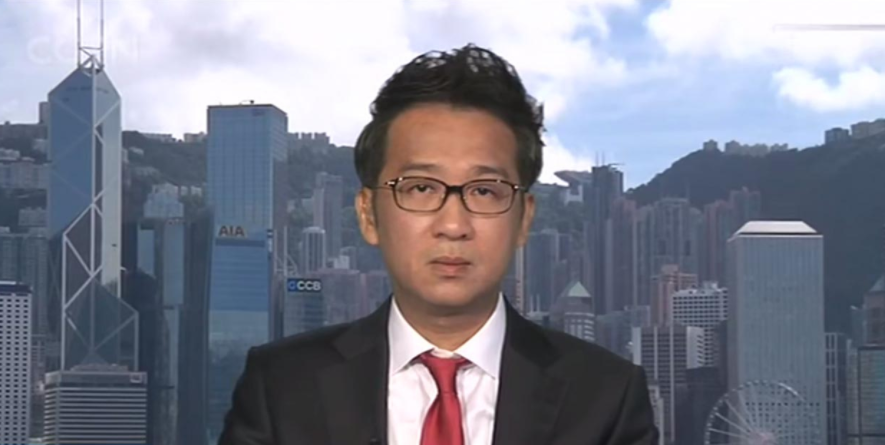
Hong Hao, chief China strategist at BOCOM International Holdings. (Photo: CGTN)
China's consumer inflation cooled in February, while factory gate price inflation dropped. What does that imply for 2020?
China's consumer inflation eased but remained high in February at 5.2 percent, down from January's 5.4 percent, according to the latest data from the National Bureau of Statistics. The results were in line with the median forecast polled by Bloomberg.
The coronavirus outbreak has suppressed consumer demand, leading to lower consumer inflation in February. When the epidemic ends, consumer demand may come back, further driving up prices.
Analysts say China is likely to import more meat, seafood and dairy products to counter the price volatility.
"Once things go back to normal, which we think will be by the end of March, then we will see that the inflation driver will go back to pork," said Wang Dan, an economist from Economist Intelligence Unit.
Wang said the African swine fever, which has caused pork shortage and pork-led inflation spikes since 2019, is expected to last longer than the coronavirus epidemic, meaning China will see high pork inflation at least through September 2020.
On the 2020 consumer inflation outlook, Wang said her team expects the number to be above 6 percent if the March inflation data comes in above 6 percent.
Hong Hao, chief China strategist of BOCOM International Holdings, has a similar expectation. "I think in March we still see elevated consumer price inflation," he said.
Although global central banks are in a hurry to cut interest rates, Hong sees "very little room" for China's central bank to cut interest rates now, due to the high-heading consumer price index.
Meanwhile, the producer price index (PPI), a gauge for the price factories charge wholesalers for products, dropped 0.4 percent year on year, reversing January's upward trend. The results were below expectations.
The epidemic, including transport curbs and social panic, has disrupted China's supply chains. The overall sluggish demand has weighed on the prices of goods and services. The oil slump has also fed into the weakness.
"PPI, because of the factory close-down and suspension of economic activities, actually sink further into deflation," Hong said. "PPI weakness is really showing weakness of supply and weakness of economic activity. So, I think, all in all, the inflationary picture doesn't look very rosy to me."
But Wang said the disruption is temporary.
"For the rest of the year, I think the PPI would be relatively stable because we do anticipate a very strong fiscal stimulus, and that would involve a lot of infrastructure building, a lot of housing construction. So, that will drive up the factory prices," Wang told CGTN, adding that the industrial sector will have a rosier picture than the service sector.


